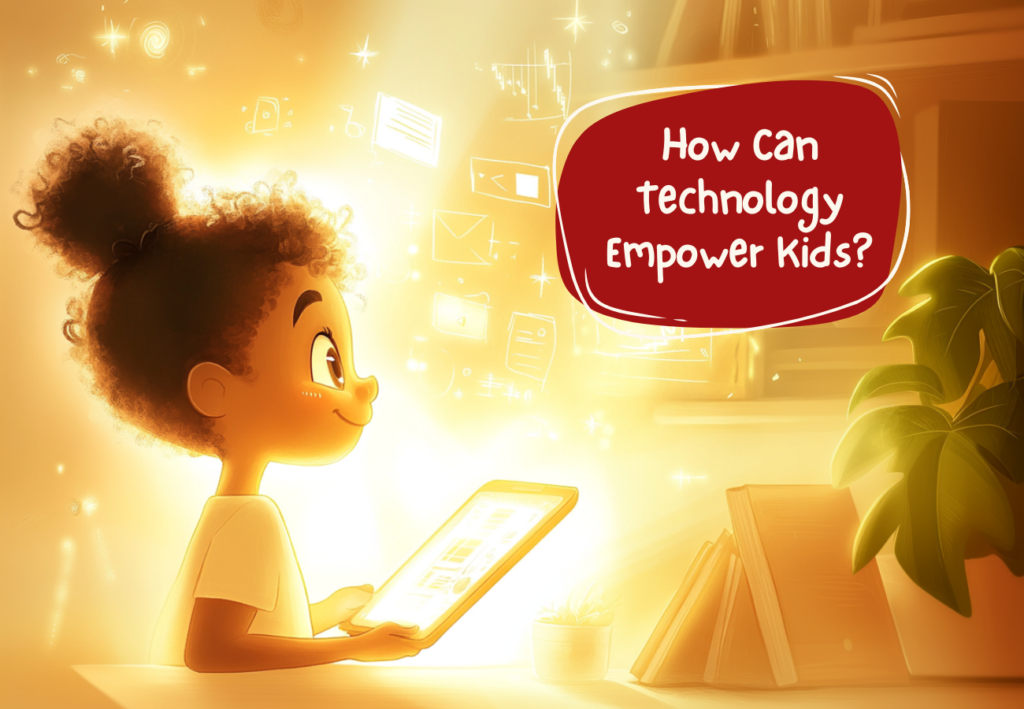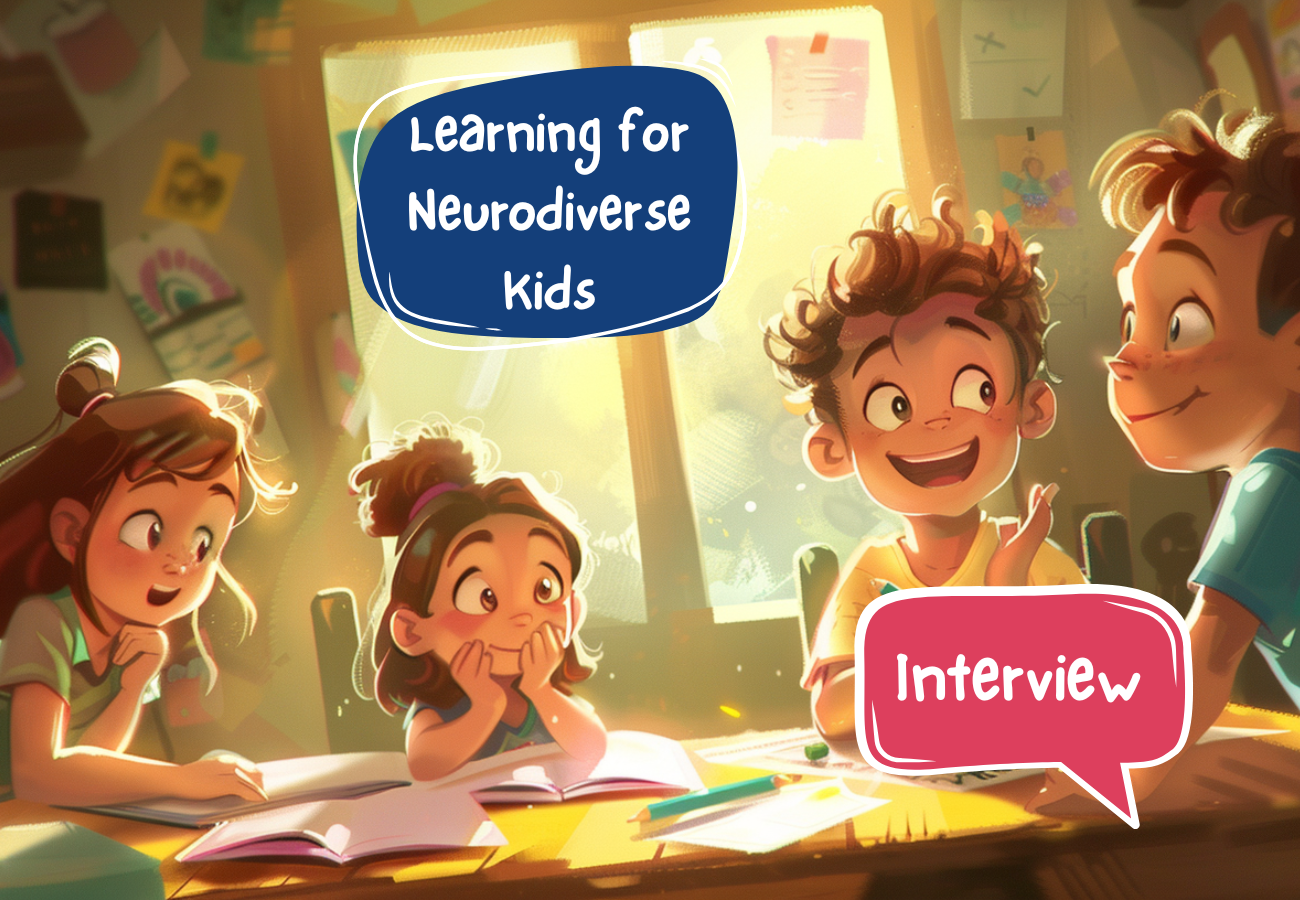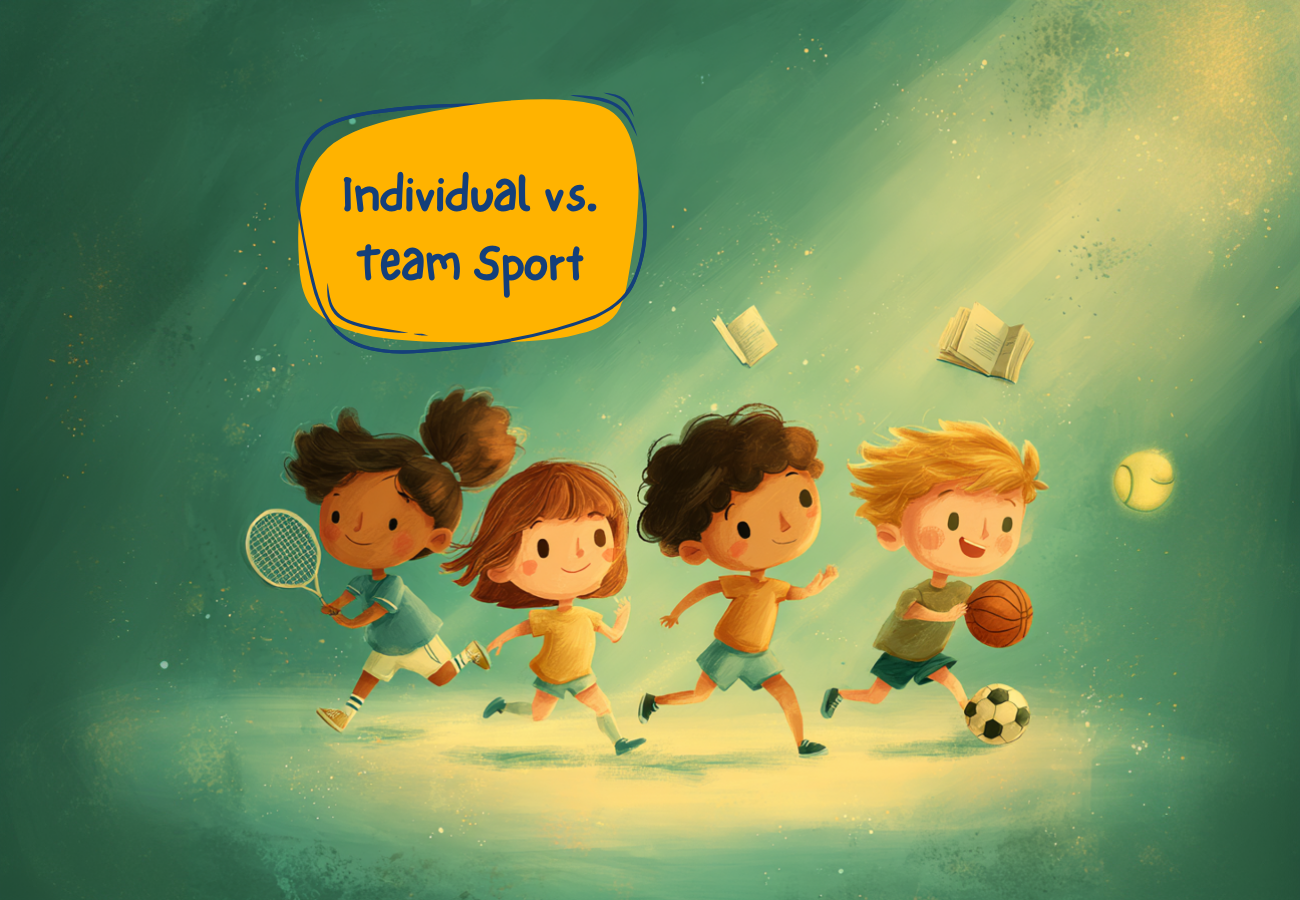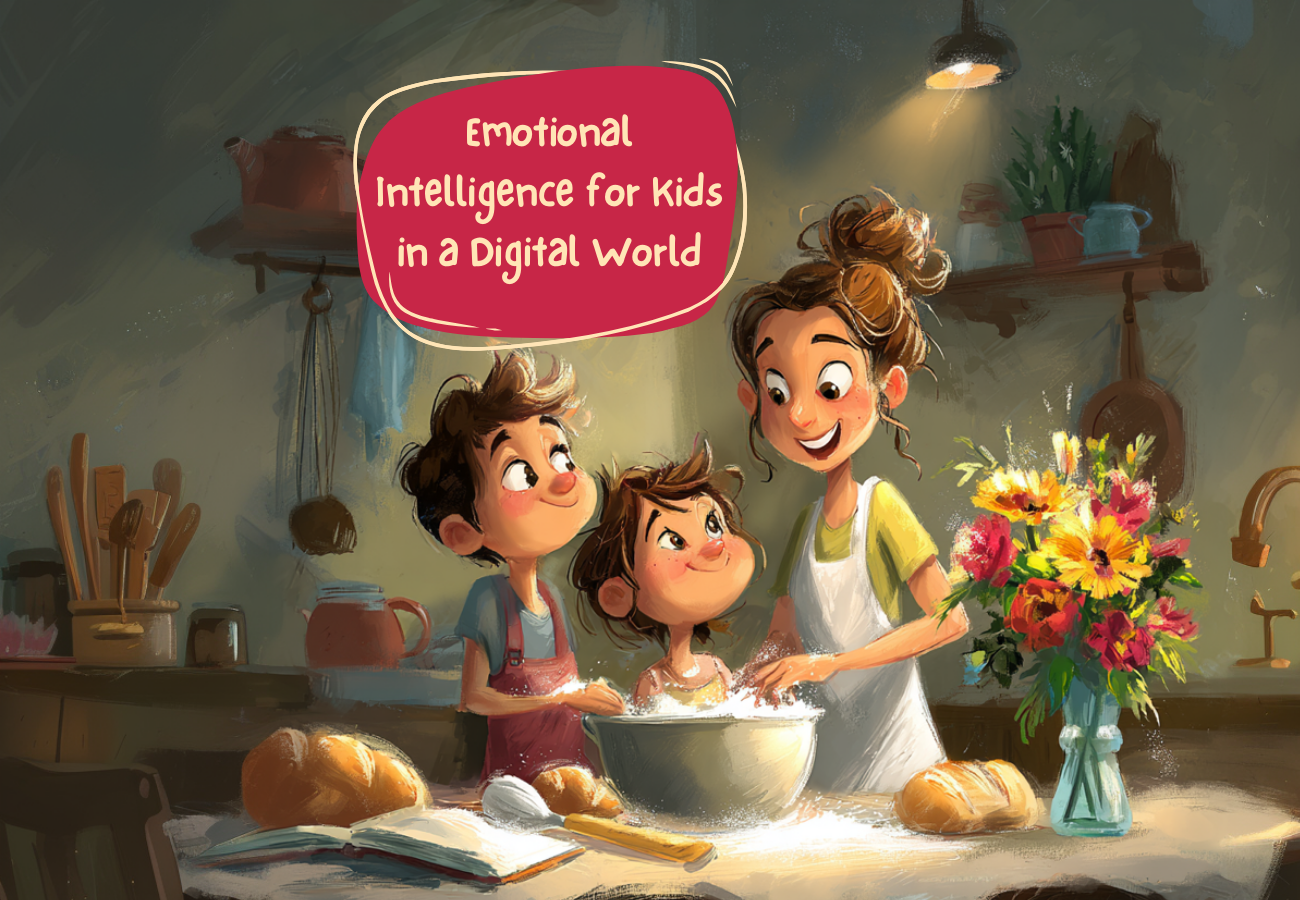How Technology Can Empower Your Kids to Learn, Grow, and Thrive

Technology often gets a bad rap when it comes to its effects on children, including issues related to screen time, cyberbullying, and online distractions. While these concerns are valid, these misconceptions should not overshadow its incredible potential to enhance education, creativity and well-being for your child when used responsibly and mindfully. When used appropriately, technology becomes an invaluable resource to help children discover their full potential in exciting new ways. In this blog, we will look at how tech can be a positive force.
Learning Through Educational Apps
Our digital age offers us access to an abundance of educational apps tailored for children of all ages, from math problem-solving games to language lessons, making learning both engaging and immersive for your kids. Gamified content engages kids in learning while strengthening their memory retention. Popular platforms such as Duolingo for language study or Khan Academy’s wide array of subjects serve as portable classrooms where kids can take control of their education at their own pace. Not only can these apps supplement traditional schooling, they can also serve as resources to expand their horizons outside the curriculum. Coding platforms like Scratch provide an ideal introduction to programming for kids while sparking their interest early and creating valuable life skills.
Photo by bady abbas on Unsplash
Ebooks to Enhance Reading
Ebooks have changed the way children interact with reading, making it more accessible and enjoyable than ever before. With their customizable features like adjustable font sizes, built-in dictionaries, and text-to-speech capabilities, ebooks meet a range of learning needs and promote literacy from an early age. Many platforms provide interactive stories with activities designed to reinforce key reading concepts, like vowel teams recognition that is important in developing phonics and decoding abilities. Ebooks differ from traditional books in that they integrate visual and audio elements that engage young readers while improving their comprehension. Ebooks encourage gradual learning by enabling kids to highlight words, take notes, and revisit text at their own pace for independent exploration. Parents and educators find ebooks invaluable tools for matching reading material to their child’s skill levels, encouraging steady progress. Overall, by combining technology and storytelling elements into engaging experiences for readers of all ages, ebooks make reading an exciting and enriching experience while developing important foundational skills in an entertaining fashion.
Encouraging Creativity With Digital Tools
Encourage creativity using modern technology tools instead of being limited to paintbrushes or pencils alone. Allow children to explore their imagination with various creative solutions available through modern tech platforms. Apps such as Procreate and Canva empower young artists to design and produce impressive digital artwork, while tools like iMovie enable them to write, edit and produce their own films. GarageBand introduces children to sound production, giving them the tools needed to compose original music or experiment with various instruments. These digital platforms help form their self-expression by encouraging children to bring their ideas to life in novel and exciting ways. Through technology, young artists are now exploring artistic mediums unthinkable just a few decades ago, unlocking an era of limitless creative potential.
Strengthening Communication and Social Skills
For children who struggle with traditional social interactions, technology provides innovative means of developing communication and social skills. Video calling apps, interactive games and collaborative online platforms offer safe and supportive environments to develop skills. Minecraft provides an example of such an environment, where kids collaborate together on building imaginary worlds to solve problems and meet shared goals. Apart from enhancing creativity, these tools play a huge role in teaching key social skills such as conflict resolution, negotiation and collaboration. Through digital avenues, children not only connect with peers but also build confidence expressing themselves and managing group dynamics. Technology acts as an invaluable bridge, helping children close any social gaps they may be experiencing and providing them with opportunities to develop in ways that feel natural and engaging to them. Combining fun with learning opportunities these platforms promote both individual growth as well as creating an identity in an increasingly interconnected world.
Supporting Personalized Learning
Every child is unique, and technology enables education to be personalized specifically to their needs. Adaptive learning platforms use artificial intelligence to track your child’s progress and adjust the difficulty of the lessons accordingly. DreamBox or Lexia Learning offer personalized challenges with real-time feedback to ensure efficient progress. Students with learning differences also reap many advantages from speech-to-text software, audiobooks and visual learning tools, giving them more chances at academic success by making education more accessible.
Health and Fitness in the Digital World
Technology doesn’t just promote inactivity, in fact, it can encourage kids to stay active. Fitness trackers and apps aimed at children encourage kids to move their bodies through fun and engaging means. Like virtual step challenges or yoga tutorials. Interactive video games like Nintendo Switch’s Ring Fit Adventure combine physical activity with entertainment by turning physical activity into a game. Also, mental health apps aimed specifically at children encourage mindfulness techniques for managing emotions.
Forming Problem-Solving and Critical Thinking
Many technologies designed for kids aim to help form critical thinking and problem-solving ability. Puzzles, strategy games and simulation apps introduce complex challenges for them to face. Apps like ROBLOX or Civilization VI encourage children to consider strategies, resources management and building structures with purpose when playing them. These skills not only increase cognitive function but also prepare children for real world challenges, instilling resilience and adaptability among users.
Cultivating Responsibility Through Tech Interaction
Technology can also play an amazing role in shaping children’s overall development. Through guidance, children can learn how to effectively use devices responsibly. From managing time online, using privacy settings effectively and distinguishing reliable information sources from non-credible sources, all the way up to building digital literacy early. Doing this ensures they become mindful internet users capable of fighting misinformation while facing the challenges associated with an increasingly connected world.
Photo by Kelly Sikkema on Unsplash
Conclusion
Technology can be a fantastic ally in helping your children realize their full potential when used wisely. Parents and educators have an incredible opportunity to harness today’s tools and resources for making learning, creativity, and personal development more accessible than ever. With balanced use of tech in education comes an increased ability to inspire children towards brighter futures than ever before.
More articles

Creating Joyful Learning for Neurodiverse Kids: A Homeschooling Mom’s Journey with Alicia Ortego Books
A New Path in Education We always love hearing how our books support children and parents around the world. Recently, we spoke with a mom of three neurodivergent boys and the founder of Backyard Academy. Every day, she looks for creative ways to approach learning and parenting, and she shared with us how Alicia Ortego’s […]

Individual vs. Team Sport Activities for Your Kids: Pros and Cons
Helping children stay active and healthy often starts with sports. But deciding between individual or team sports can be tricky. Each type offers unique experiences and developmental benefits, but also has potential drawbacks. Understanding the differences can help you make informed choices based on your child’s personality, interests, and abilities. What Are Individual Sports? Individual […]

How to Nurture Your Child’s Emotional Intelligence in the Digital Age
Raising children today is nothing like it was in the 90s. Children in the 90s spent the majority of their time playing outdoors with neighbors or going to the local library or the beach. In that era, screen time mostly centered around TV, cable, or video games. But things are quite different in 2025. Kids […]



